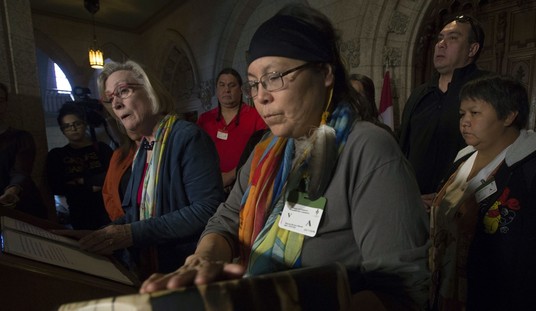Saying he was “deeply disappointed” that after more than a year of work that included 400 meetings the Alaska State House had failed to even bring SB 128 to the floor for a vote, Gov. Bill Walker (I) has called legislators back for a second, 30-day special session.
Three items are on the agenda for the special session that begins July 11. All are related to solving Alaska’s massive budget problem: a $3.2 billion deficit.
The Legislature did approve a budget for the 2017 fiscal year that relied on savings to pay for state government services. However, Alaska’s cash flow problem that stems from its dependency on oil revenue and the crashing price of that oil remained unresolved.
Charles Wohlforth, an Alaska Dispatch News columnist, wrote June 4 the 2017 budget deal the Legislature approved in late May wasn’t good enough.
“To put the magnitude of this decision in perspective, the savings that would be spent this coming year would, if retained as savings, perpetually generate enough interest to spin off about $200 million annually. That’s as much as the income tax the Legislature hasn’t had the stomach to vote on,” Wohlforth wrote.
Wohlforth also noted Ron Duncan, the CEO of the telecommunications company GCI, had warned the failure to figure out how to balance Alaska’s budget without drawing down on savings would “more than double the severity of the coming recession” and reduce Alaska’s population by 100,000.
You think Gov. Walker wants that to happen on his watch?
Walker wants to draw about 5 percent in earnings each year from the Alaska Permanent Fund to help balance the budget. He also wants to slash Permanent Fund dividends.
The Alaska Permanent Fund was written into the Alaska Constitution in 1976 after oil began flowing from Alaska’s North Slope through the Trans-Alaska Pipeline.
Alaska residents share in the revenue generated primarily by oil. The individual dividend checks are calculated by several factors, including a five-year average of the Permanent Fund’s performance and how long the resident has lived in Alaska.
The smallest check was $331.29 in 1984. The largest payout was $2,072 in 2015.
How many politicians do you know that would be willing to take a couple thousand dollars out of a constituent’s wallet and then ask for his vote?
Walker said the alternative would be to leave Alaska without a dime in savings in four years.
“So, it’s about getting the job done now. Is it politically uncomfortable? Of course it’s politically uncomfortable,” Walker told reporters in a June 19 press conference as he announced the call for a second special session.
The Alaska Legislature’s first special session ended June 18 when the House adjourned without moving Walker’s Permanent Fund proposal into position for a vote.
Juneau Empire reported legislators who objected to Walker’s proposal to use Permanent Fund monies to pay off the state’s debt, along with cutting dividend checks that residents have come to depend on, were only listening to their constituents.
Republican Senator Anna MacKinnon called the Walker package “a bit overwhelming.”
“But I understand the governor’s perseverance at trying to set Alaska on a fiscal path that is sustainable,” she added.
Rep. Craig Johnson (R), the chair of the House Rules Committee, said at least another year or two of study is needed before the Legislature can make the kind of sweeping changes that Walker has proposed.
“Is everything we’re paying for – do we really need to be? What is the role of government?” Johnson told Alaska Public Media. “I think it’s going to take a deeper look than what we can put together in 30 days.”
The House also failed to act on a proposal backed by Walker that would have raised $9 million a year by increasing fees for many hunting and fishing licenses and tags.
“Right now, when we’re absolutely broke, is not the time for us to be paying out oil and gas tax credit subsidies, and I’m not willing to ask working Alaskans to pay for those,” Rep. Ivy Sponholz (D) told KTVA. “So the first thing that needs to happen is we need to take those off the table. Either the governor needs to veto those from the budget or we need to look at a new package.”
Walker has to decide by July 1 if he will veto any line items from the state’s budget.
As disappointed as Walker might find the result of the first special legislative session, House Speaker Mike Chenault (R) said it was pointless to sit around in Juneau rehashing the same material and coming to the same decisions they had for the past 150 days.
“I think it’s time that we could get out of town, maybe go back, talk to our constituents and get a better feel of what they’re really thinking versus what we hear down here in Juneau,” he said.
Rep. David Guttenberg (D) was one of the votes against sending Walker’s plan from the House Finance Committee to the floor for a vote.
“It takes time to do these things, it takes time to get them right. Sometimes you think, ‘It’s just an answer. If you just listen to me and do what I said.’ It’s like, well, maybe that isn’t the right thing,” Guttenberg said.
“Maybe that’s why we have the committee process,” he added. “That’s why we work through things because people have other answers that might be better.”
Nothing like a focus group, right?
Well, maybe if Gov. Walker, who once was a Republican but now considers himself to be an independent, can limp through the end of this year, he’ll be able to count on some fresh independent faces next year.
Alaska Dispatch News reported more than a dozen independent candidates have filed to run for the legislature in this year’s election.
Veterinarian Jeanne Olson, who is running for a seat in the state House, hopes to follow in Walker’s footsteps and defeat an incumbent legislator.
Walker defeated Republican Gov. Sean Parnell in 2014.
It is possible, said Olson. After all, more than half of Alaska’s voters don’t belong to a political party.
“I just think there’re enough people that are really disgusted and disappointed in the parties,” said Olson. “That’s what I’m counting on.”









Join the conversation as a VIP Member